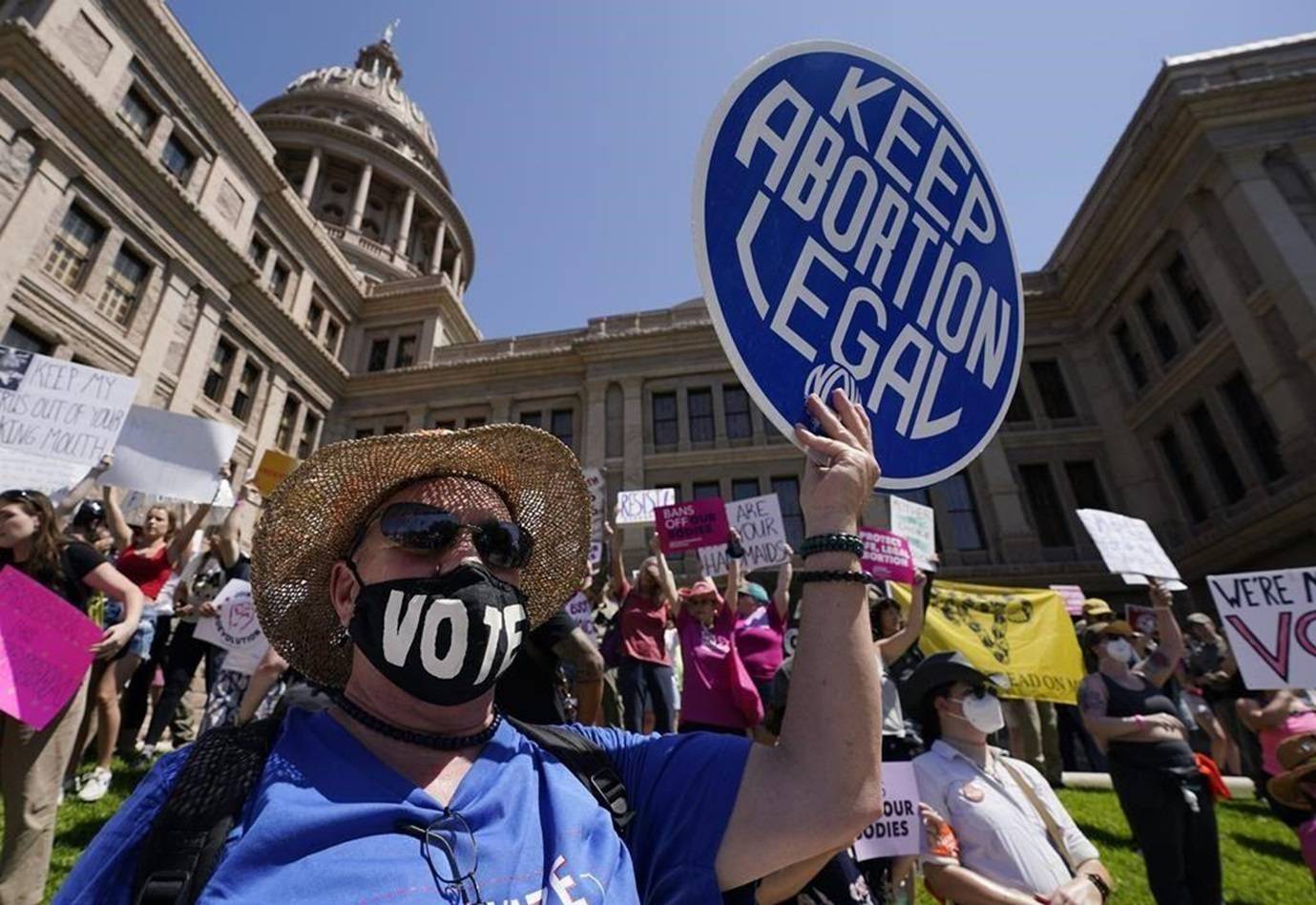
Abortion rights supporters gather for a rally at the Texas state Capitol in Austin. Fast forward to December 5, 2023, and a pregnant Texan, facing a heartbreaking diagnosis for her fetus, is seeking court permission to end the pregnancy. Her legal team claims this marks the first-of-its-kind lawsuit in the U.S. since the overturn of Roe v. Wade last year. (AP Photo/Eric Gay, File)
In a groundbreaking development, a Texas judge has granted permission for a pregnant woman facing a fatal fetal diagnosis to undergo an abortion, marking a unique legal challenge amid the restrictive abortion bans implemented by over a dozen states following the overturning of Roe v. Wade. The case, brought by 31-year-old Kate Cox, a mother of two from the Dallas area, is believed to be the first instance since the landmark Supreme Court decision last year where a woman nationwide has sought court approval for an immediate abortion.
The ruling, issued by State District Judge Maya Guerra Gamble, a Democrat, involves a temporary restraining order that allows Cox to access an abortion under specific exceptions to Texas' stringent ban. The state is expected to appeal the decision, contending that Cox does not meet the criteria for a medical exemption.
During a brief hearing, Cox's attorneys informed Judge Gamble that the 20-week pregnant woman had visited the emergency room four times due to complications. Cox, along with her husband, attended the hearing via Zoom, refraining from addressing the court directly. Medical experts have advised Cox that inducing labor, should the baby's heartbeat cease, poses a risk of uterine rupture due to previous cesarean sections. Additionally, a full-term C-section could jeopardize her ability to carry another child.
Judge Gamble expressed concern that the law's potential impact on Cox's ability to bear children is shocking and constitutes a miscarriage of justice. The Center for Reproductive Rights, representing Cox, asserts that this legal challenge is unprecedented since the overturning of Roe v. Wade. Texas, along with 12 other states, hastily enacted strict abortion bans across various pregnancy stages following the landmark ruling. Efforts to challenge these bans persist, with an ongoing Texas case examining whether the state's law is overly restrictive for women with pregnancy complications.
In an editorial published in The Dallas Morning News, Cox expressed her reluctance to endure the continued suffering of her pregnancy or subject her body and mental health to the risks associated with its continuation. She emphasized the desire to spare her baby from a life of suffering.
Despite exceptions under the ban, critics argue that Texas' vaguely worded requirements dissuade physicians from performing abortions due to the potential legal repercussions. State officials opposed Cox's request, asserting that she does not meet the criteria for an exception.
Cox's doctors have informed her that her baby is likely to be stillborn or survive for a week at most, according to the lawsuit filed in Austin. The legal action follows the recent hearing at the Texas Supreme Court, examining the ban's potential restrictions on women with pregnancy complications, representing one of the key challenges to abortion bans in the U.S.
Cox, who underwent cesarean sections in her previous pregnancies, learned of her high-risk pregnancy in August. Diagnosed with trisomy 18, a condition with a high likelihood of miscarriage or stillbirth and low survival rates, Cox's lawsuit contends that doctors indicated their inability to offer an abortion under Texas' restrictive ban.
While more than 40 women in Texas have received abortions since the ban's implementation, state health figures indicate no resulting criminal charges. The ban, effective for the past year, saw over 16,000 abortions in Texas in the preceding five months. The legal landscape surrounding abortion rights in the state remains complex and subject to ongoing legal challenges.















